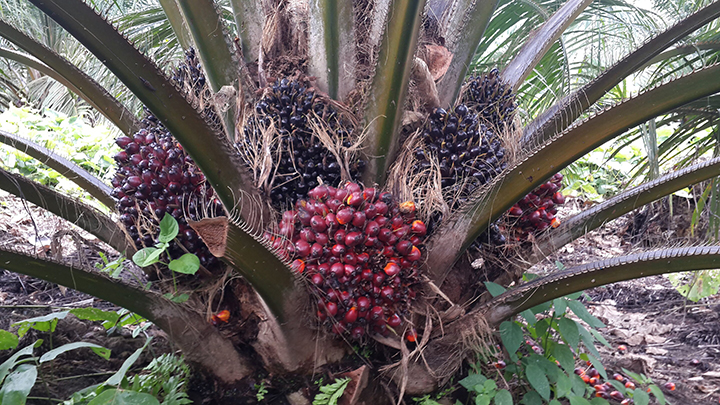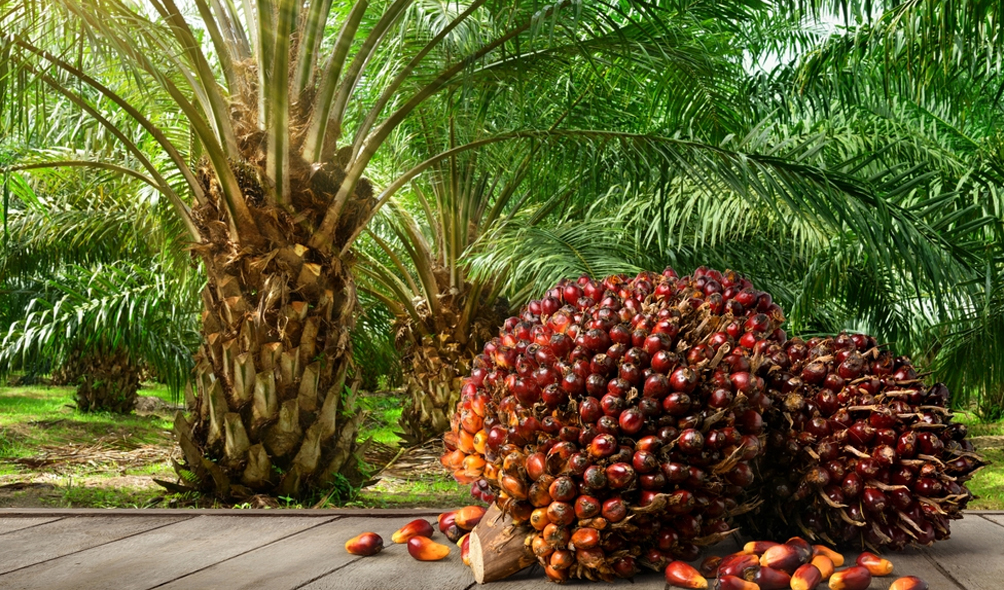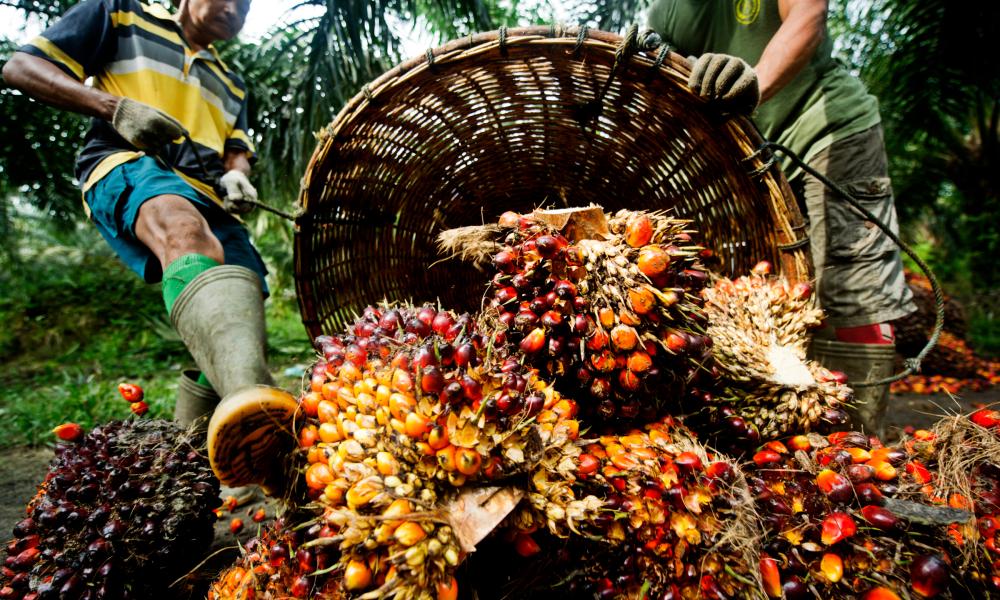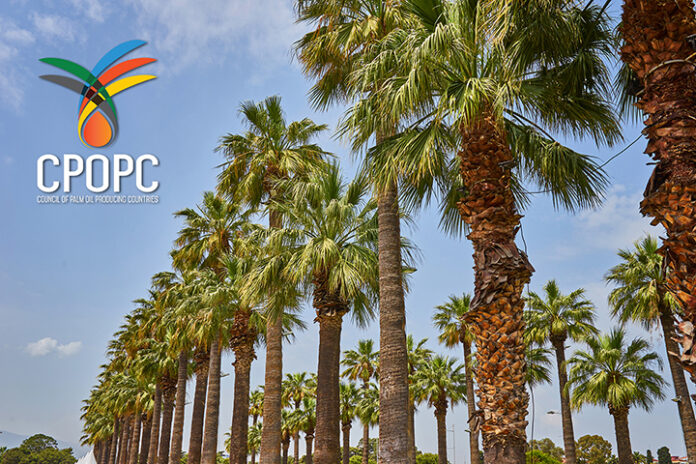Q. What is the global significance of palm oil today and how does CPOPC play a role in this evolving landscape?
Palm oil holds immense global significance as one of the most productive oil crops in the world due to its versatility, efficiency, and widespread use. It has become one of the key ingredients in food products, household goods,cosmetics, and biofuels . Its high yield per hectare makes it a crucial crop for meeting the needs of a growing global population while using relatively less land compared to other vegetable oils. The oil used by over 3 billion people daily, either directly (in cooking) or indirectly (in processed goods).Nations such as India, China, Pakistan, Indonesia, and the European Union rank among the top importers, underscoring the global dependence on this vital commodity.
The Council of Palm Oil Producing Countries (CPOPC) is playing a pivotal role in shaping the future of the global palm oil industry. Founded by Indonesia and Malaysia, who together account for over 80% of global production has now five member countries and three countries as observers. These countries collectively produce nearly 90% of the global palm oil. As such, CPOPC aims to harmonize the voices of producing nations and ensure the industry grows in a sustainable, inclusive, and equitable manner. More importantly CPOPC is seen as the face of palm oil champion in the global stage.The rising demand for palm oil has also brought increased scrutiny regarding environmental and social impacts. This is where the CPOPC plays a vital role in safeguarding the interests of palm oil producing nations by promoting sustainable production practices and supporting inclusive growth, especially for smallholders.
The Council has adopted a ‘triple-track approach’ in advancing its international agenda. First, it leverages existing palm oil platforms across member states, other producing nations, and key consuming countries to strengthen cooperation and influence. Second, the CPOPC collaborates with producers of other vegetable oils to promote a unified front on sustainability. Third, it actively engages with United Nations platforms to reshape the global narrative on palm oil, advocating for a more balanced and science-based perspective.
CPOPC promotes and supports national certification schemes like Malaysian Sustainable Palm Oil (MSPO) and IndonesianSustainable Palm Oil(ISPO) which uphold environmental and social responsibility in palm oil production. These standards ensure traceability, reduce deforestation, and protect workers’ rights, aligning with international sustainability expectations.Among other core task of CPOPC is to actively counter misinformation, foster international cooperation, and ensure that palm oil continues to be produced in a way that respects people’s right and protect the planet.
CPOPC also acts as a united front to respond to discriminatory trade practices, negative campaigns, and non-tariff barriers faced by palm oil in international markets. Through international meetings, policy platforms, and South-South cooperation, CPOPC strengthens collaboration among producing and consuming countries. It works to align palm oil development with the UN Sustainable Development Goals (SDGs), emphasizing food security, poverty reduction, and climate action.
Q. Can you share insights on current trends in palm oil consumption globally and what this means for importing nations like Pakistan?
Palm oil has emerged as the most globally significant agricultural commodities due to its exceptional high yield as compared to other vegetable oils. It has become a cornerstone of global supply chains, due to its affordability and functionality making it critical for ensuring food security, especially in developing countries. Global palm oil consumption is experiencing a notable shift, particularly in Asia, which has significant implications for importing nations like Pakistan.

Asia-Pacific region’s consumption of palm oil has surged to 66 million tons in 2024, a 21% increase from the previous year. This growth was driven by rising demand in countries like India and China, where palm oil is favored for its affordability and versatility in food and industrial applications. Whereas, Pakistan also heavily relies on palm oil imports, with approximately 90% of its 3 million-tons vegetable oil requirement fulfilled through palm oil, sourced from Indonesia and Malaysia. Pakistan has imported 2.489 million tons between July 2024 andFebruary2025 recording an increase of 10%.
There are evolving dynamics to global palm oil consumption, particularly in Asia, which presents both challenges and opportunities for Pakistan. While increased demand in neighboring countries may strain supply and elevate prices, they also highlight the strategic importance of securing stable import channels and investing in domestic production capabilities to ensure food security and economic stability. Pakistan’s domestic edible oil demand stands at 4.5 million tons per year, while local production is only around 0.5 million tons. To bridge this gap, Pakistan imports approximately 3 million tons of edible oil annually, with palm oil accounting for 2.9 million tons in 2023. This underscores the role of palm oil in ensuring food security in Pakistan.
Q. How does the palm oil supply chain work? and what value does it bring to countries like Pakistan?
The palm oil supply chain is a complex and integrated system that begins with cultivation and spans through processing, refining, logistics, and distribution, supporting various value-added industries. For importing nations like Pakistan, this supply chain offers significant economic and industrial development potential.

Pakistan as net importer of edible oil for its food security is dependent on crude or semi-refined palm oil. Numerous refineries in Pakistan can refine these products into edible form, which is widely used as cooking oil and in manufacturing value-added products like vanaspati ghee, soaps, surfactants, and personal care items. Since palm oil is affordable than other edible oils in the market, it has become a key ingredient in processed foods, supporting bakeries, snack producers, and confectionery companies.
Q. What frameworks like ISPO and MSPO ensure palm oil is sustainably produced, and how can Pakistan benefit from engaging with these mechanisms?
To ensure palm oil is produced responsibly, sustainability certifications such as the ISPO and the MSPO standards have been established by producing countries. These national certification schemes are designed to align palm oil production with internationally recognized principles of environmental stewardship, social responsibility, and economic viability. Both ISPO and MSPO promote transparency, reduce deforestation, and protect the rights and livelihoods of smallholder farmers.
For a country like Pakistan, which is a major consumer and is exploring opportunities in palm oil processing and cultivation, engaging with frameworks like ISPO and MSPO can offer several advantages. By adopting or benchmarking these standards, Pakistan can enhance the sustainability and traceability of its palm oil value chain; this could open doors for technology transfer, capacity building, and stronger trade relationships with leading producer countries like Indonesia and Malaysia.

Moreover, aligning with established sustainability standards would position Pakistan as a responsible player in the global palm oil landscape, attract environmentally conscious partners, and support the development of local certification systems tailored to national needs.
Q. What would you say to critics concerned about palm oil’s health effects and environmental impact?
Criticism surrounding palm oil often centers on its health implications and environmental footprint. While these concerns are not unfounded, it’s important to reframe the debate with science-based evidence and recognize the significant progress being made in sustainability across the palm oil industry.
Palm oil is frequently criticized for being high in saturated fats, but in nuanced reality palm oil is roughly 50% saturated fat, 40% monounsaturated, and 10% polyunsaturated—comparable to animal fats but with no cholesterol.Additionally, red palm oil contains tocotrienols (a form of Vitamin E) and beta-carotene, which have antioxidant properties. Numerous scientific studies have shown that moderate consumption of palm oil does not raise LDL cholesterol. In fact, it may help maintain a healthy ratio between LDL and HDL cholesterol.

On the other hand, legitimate environment concerns exist,regarding deforestation and habitat loss, particularly in Southeast Asia. Significant reforms have been initiated by the palm oil producing countries to address these issues which are;
- Many major producers and traders have adopted No Deforestation, No Peat, No Exploitation (NDPE) policies, which ban the clearing of primary forests and protect workers’ rights.
- Traceability and Certification systems have been put in place. Roundtable on Sustainable Palm Oil (RSPO) Certification now covers nearly 20% of global production. While advanced traceability systems and satellite monitoring are being used to track the origin of palm oil and ensure compliance. While RSPO is volunteer basis, both Malaysian and Indonesian Governments has taken pro-active steps in making MSPO and ISPO as a mandatory requirement for all palm oil industry players.
- Palm oil is the most efficient vegetable oil crop, requiring 4–10 times less land than soybean, sunflower, or rapeseed oil for the same output. Globally, palm oil utilizes about 29 million hectares for cultivation while soybean more than 136 million hectares, rapeseed 44 million hectares and sunflower 30 million hectares as of 2023.
When responsibly produced and consumed in moderation, palm oil is nutritionally sound and environmentally viable and can be part of a more sustainable and healthier global food system. The real solution lies not in boycotts, but in supporting sustainable production, transparency, and encouraging policy engagement.
Q. How is technology shaping the future of sustainable palm oil-from farm to frying pan to biofuel?
Technology has transformed the palm oil industry across its entire value chain from plantations to processing to end-use applications; ensuring greater sustainability, transparency, and efficiency. Lately, global expectations have risen for responsible production and climate-smart agriculture, innovative tools are also reshaping how palm oil is grown, traded, and consumed.

Palm oil industry has started adopting various technological aids to improve the entire value chain and making palm oil more sustainable, accountable, and future-ready. Following are few examples of technologies are being used;
1.) Digital traceability systems are now integral to tracking palm oil from plantation to final product. These systems use blockchain, QR codes, and integrated supply chain software to a) Map origins of fresh fruit bunches (FFB); b) Monitor custody transfers across mills, refineries, and distributors; c) Provide real-time data to regulators, buyers, and consumers. This transparency builds trust and ensures that palm oil is produced without contributing to illegal land use or deforestation.
2). Introduction of satellite imagery and remote sensing technologies allow near real-time monitoring of palm oil plantations. This helps to detect- a) Illegal land clearing or encroachment; b) Deforestation in high conservation value (HCV) areas; c) Fires and land degradation risks. These tools enforce sustainability commitments and quick response to environmental threats.
3). Digital certification and smart auditing tools are being used in palm oil certification processes to reduce bureaucracy and increase integrity. Tools such as- a) Mobile apps for field assessments; b) Digital dashboards for compliance tracking; c) AI-enabled audit systems. These help smallholders and companies to meet national and international sustainability standards more efficiently and cost-effectively.
Technology is also enabling palm oil to contribute to low-carbon energy transitions. The advanced processing techniques are improving the quality and yield of palm-based biodiesel and hydro-treated vegetable oil (HVO). Currently, research is underway into second-generation biofuels that utilize palm oil waste such as empty fruit bunches and palm kernel shells to generate clean energy.

These developments align with global climate goals and also diversify palm oil’s role beyond food use. By embracing above mentioned tools, the industry is striving to enhance its global image, protect the environment, and ensure long-term economic viability—truly transforming palm oil “from farm to frying pan to fuel” in a sustainable way.
Q. Beyond food-what are some industrial and non-food applications of palm oil relevant to Pakistan’s growth sectors?
While palm oil is widely recognized as a staple in the global food industry, its non-food applications play an equally critical role in powering industrial growth in emerging economies like Pakistan. These applications span across cosmetics, personal care, pharmaceuticals, and bioenergy, offering immense value-added potential for domestic industries and export diversification.
Palm-based methyl esters are a viable alternative to fossil fuels. While biodiesel adoption in Pakistan is still in its early stages, the country has ambitious renewable energy targets. Palm oil-based biodiesel could offer a cleaner energy source for industrial fleets and agricultural machinery, especially if supported through government incentives.
With proper lobbying, Pakistan can align its industrial policy with global sustainability goals while unlocking new economic opportunities.Palm oil’s non-food applications offer Pakistan a chance to deepen industrial linkages, reduce reliance on imports, and move up the global value chain. By strategically investing in oleochemical processing and fostering public-private collaboration, Pakistan can transform palm oil from a raw import into a cornerstone of industrial innovation and sustainable growth.
Q. How does CPOPC currently engage with Pakistan, and what shared interests guide this collaboration?
CPOPC engages with Pakistan through a combination of policy dialogue, trade relations, and cooperative initiatives aimed at strengthening the palm oil supply chain and fostering mutual economic interests.
In the past several ministerial-level dialogues have taken place between CPOPC member countries and Pakistani officials. These talks typically emphasize on ensuring uninterrupted palm oil supply, addressing tariff and non-tariff barriers, promoting the use of certified sustainable palm oil, strengthening bilateral relations through agro-industrial cooperation. Pakistan has also expressed interest in securing long-term supply agreements and technical support from Indonesia and Malaysia. Furthermore, CPOPC and Pakistan have explored formalizing collaboration through MOUs focused on promoting sustainable palm oil trade, capacity building and knowledge sharing as well as facilitating investment in palm oil refining and processing infrastructure.

In addition, there is ongoing engagement between private sector players in the palm oil industry producing countries and Pakistani companies. These collaborations include joint ventures in refining and downstream processing, technical partnerships to improve logistics and storage and market development for palm-based consumer products. Currently, there are a number ofIndonesian and Malaysian firms have established a presence in Pakistan through direct investments or local distribution agreements.
In short, CPOPC’s engagement with Pakistan is multifaceted, with active trade, government-level dialogues, formal agreements, and business-to-business collaboration.
Q. Why is palm oil essential to Pakistan’s food security and affordability compared to other edible oils?
Palm oil plays a crucial role in Pakistan’s food security due to its unique combination of year-round availability, cost competitiveness, and a reliable nutritional profile. As a net-importing country with limited domestic oilseed production, Pakistan depends heavily on palm oil to meet the nutritional needs of its growing population. Unlike many oilseeds that are harvested seasonally, palm oil is produced consistently throughout the year. This steady global supply allows Pakistan to maintain stable inventories, avoid seasonal price shocks and ensure consistent availability of edible oils in both urban and rural markets
Palm oil remains as the most affordable edible oil on the international market. Its high yield per hectare and efficient production makes it comparatively cheaper than alternatives like soybean, sunflower, and canola oil. Palm oil is seen as a more economically viable option for every Pakistani household, which keeps food inflation under control and a preferred choice for bulk food producers, bakeries, and street vendors. Embracing palm oil as a cornerstone of edible oil policy can help Pakistan safeguard its food system against global volatility and domestic price pressures.
Q. What are your top policy recommendations to deepen cooperation between palm oil producers and Pakistan?
To strengthen cooperation between palm oil producers and Pakistan, a strategic, multi-dimensional policy approach is essential. CPOPC open to have dialogue with Pakistan Government to discuss on investment protection agreements, land and subsidies for palm oil refining industries as well as export incentives for value-added palm oil products. A deeper Pakistan–CPOPC partnership will require policy dialogue, targeted incentives, and mutually beneficial capacity-building initiatives. By implementing these recommendations, both partiescan secure a resilient, value-added, and sustainable palm oil partnership.
Q. Could palm oil contribute to Pakistan’s clean energy goals—especially in the biofuel space?
Emerging technologies have now enabled the conversion of palm oil and its residues into Sustainable Aviation Fuel (SAF), a game changer for countries with growing air travel needs. Palm oil is fast becoming a leading feedstock for biodiesel due to its high oil yield and chemical composition that allows efficient conversion into Palm Methyl Ester (PME). Biodiesel blends (e.g., B10, B20) are already in use across Southeast Asia, proving their viability in both commercial and public transport sectors. Beside using palm oil waste, palm oil used cooking also becoming another important source for biodiesel. Hence, Pakistan could also craft policies to utilize its used cooking oil in achieving its clean energy goals.
Palm oil has the potential to play a strategic role in supporting Pakistan’s transition toward cleaner energy, particularly through its application in biofuels. As the country moves to meet its 2030 green energy targets under international climate commitments, palm-based fuels could offer a practical, scalable, and regionally-aligned solution. In addition, Pakistan can also position itself as a regional biofuel hub by forming strategic alliances with Indonesia and Malaysia, the world’s top palm oil producers. Pakistan also could engage with international agencies like ICAO and UNDP for funding and technical support.
Palm oil’s role in clean energy particularly as a feedstock for biodiesel and sustainable aviation fuel offers Pakistan an opportunity to align economic pragmatism with environmental responsibility. By integrating palm-based biofuels into its national energy and transport strategies, Pakistan can take meaningful strides toward its 2030 climate goals, while also stimulating innovation, investment, and energy security.









